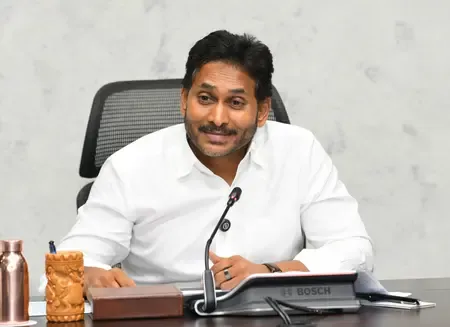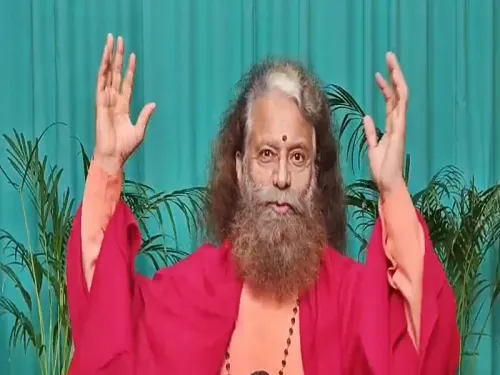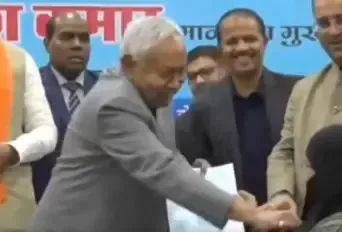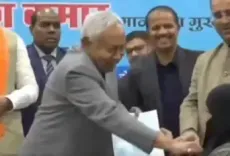Madhya Pradesh's Path to Recovery: Utilizing Rainwater to Combat Groundwater Depletion
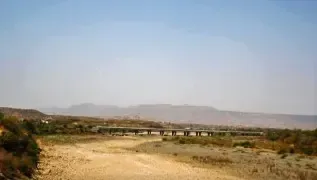
Synopsis
Key Takeaways
- Madhya Pradesh faces a significant water crisis with ongoing disputes.
- Innovative solutions like rainwater harvesting are essential.
- Groundwater depletion affects millions and threatens health.
- The Jal Jeevan Mission aims for tap water access by 2028.
- Community involvement is crucial for sustainable water management.
Bhopal, March 22 (NationPress) In the summer of 2010, the unfortunate murder of 18-year-old Poonam Yadav due to a dispute over tap water in Indore cast a dark shadow over Madhya Pradesh, revealing the critical nature of the state’s water crisis. Although such extreme occurrences have not happened again, daily conflicts over shared water resources continue, highlighting the pressing need to tackle India’s diminishing water supplies.
This crisis, with severe repercussions for agriculture, public health, and human survival, calls for innovative and localized strategies to reverse the disturbing trends of groundwater depletion.
Groundwater depletion poses a risk to progress, impacting more than 40 million Indians each year through waterborne illnesses and the hindered growth of millions of children. While efforts to counter this trend are underway, the magnitude of the issue necessitates creative and localized solutions.
On Friday evening, in Madhya Pradesh, a state frequently affected by unpredictable rainfall patterns, a courageous resolution emerged from the Legislative Assembly during the current Budget session. A member of the Bharatiya Janata Party (MLA) Ashish Govind Sharma introduced a clever proposal to implement water harvesting systems along the roads planned for future construction.
His vision encompasses recharge pits situated at intervals of 5 km, effectively collecting rainwater during monsoon seasons and channeling it underground. This approach aims to restore groundwater levels, providing relief to farmers and rural communities dealing with drinking water shortages, as mentioned by the member.
This plan aligns with the ambitious Jal Jeevan Mission, which has been extended to 2028. Originally aimed at ensuring tap water access for all rural households by 2024, the initiative has already delivered clean water to 68.4 percent of surveyed households in Madhya Pradesh.
The state, home to a significant portion of India’s 600,000 villages, remains central to this Rs 67,000 crore mission. Villages are facing challenges due to declining groundwater and maintenance issues, highlighting the urgent requirement for supplementary measures such as Sharma’s proposal.
From the total of 1,11,79,195 surveyed households, 68.40 percent, or 76,46,460 households, have been provided with tap water in Madhya Pradesh, as indicated by the Jal Jeevan Mission portal.
Nevertheless, obstacles persist, including infrastructure malfunctions and diminishing groundwater resources. To guarantee success, recharge pits have been incorporated into future road construction plans, especially in areas with naturally low water levels.
The state’s rainfall patterns have reflected its water crisis—deficits in monsoon rainfall have worsened groundwater depletion, with only rare years of surplus rainfall breaking the trend.
As reported by the Central Ground Water Board, Madhya Pradesh experienced a 9 percent deficit in rainfall compared to normal levels in 2024, continuing a concerning trend that further emphasizes the need for such initiatives.
Deputy Chief Minister Rajendra Shukla and Parliamentary Minister Kailash Vijayvargiya have advocated for these measures, stressing their alignment with urban projects and rural necessities. Consequently, the assembly passed the ‘resolution.’


